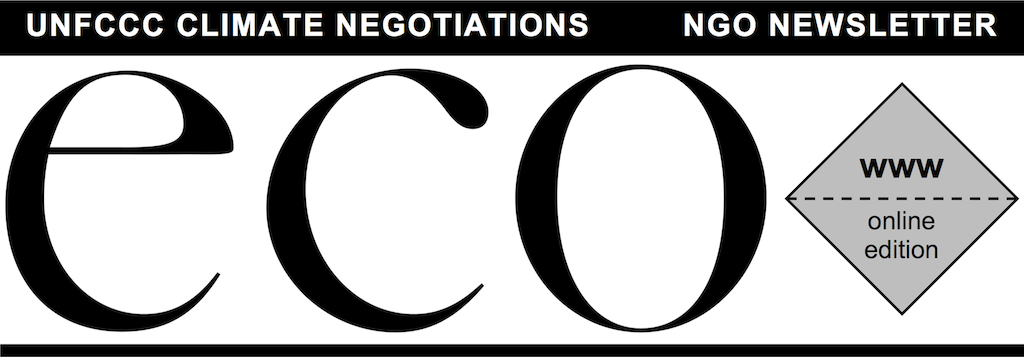Fossil of the Day
[The First Place Fossil goes to the European Union.] The EU receives a bracketed Fossil because we still have hope that the EU will stop being bullied by Poland and stand up for full cancellation of all hot air at the end of the second commitment period of the Kyoto Protocol.
Before Durban, the EU talked about the importance of closing the gap. On Kyoto it said it can commit to a second commitment period, on the condition that there’s a roadmap where the major emitters engage in a broader framework and where Kyoto rules are improved to ensure environmental integrity, specifically referring to the AAU surplus. However, the EU is still dilly-dallying. We need a strong EU position right now. If the EU fails to come to a sensible and joint position on the surplus, it will fail to be seen as serious in the ADP discussions to come. A political declaration is no option and a solution has to include a full cancellation of all surplus at the end of the second commitment period.
The Second Place Fossil of the Day goes to Poland for a fossilized position on the hot air issue. They stubbornly insist on full carry-over and generous use in the second commitment period of the Kyoto Protocol while vehemently opposing cancellation of any hot air at the end of the that period.
... Read more ...

